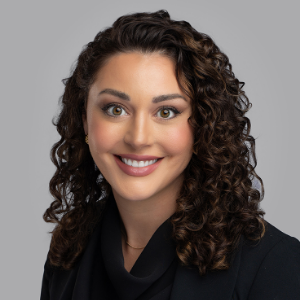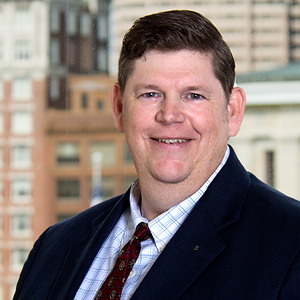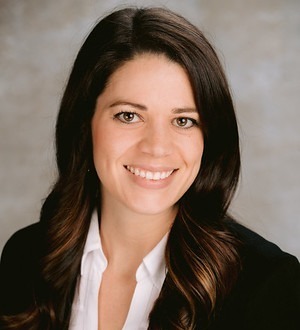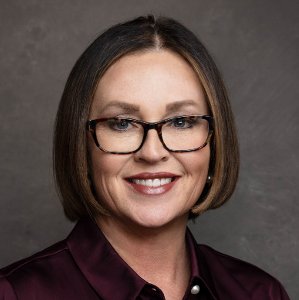Although we have tackled many of these topics previously, in this blog post I’ll provide succinct answers to some of the most common questions people have when they first seek out information about nursing home abuse cases in Ontario.
These questions and answers will give you some important background information about this terrible form of mistreatment that affects far too many members of a uniquely vulnerable group of persons. But, for specific questions about the circumstances around your case or clarification of any of these answers, it is always best to contact a nursing home negligence lawyer for an initial no cost, no obligation consultation.
What Constitutes Nursing Home Negligence or Abuse in Ontario?
The Fixing Long-Term Care Act establishes how the province’s nursing homes are to be run. It is guided by the fundamental principle that a long-term care home is “primarily the home of its residents and is to be operated so that it is a place where they may live with dignity and in security, safety and comfort and have their physical, psychological, social, spiritual and cultural needs adequately met.”
The Act’s regulations state that a resident must be protected from abuse of an emotional, financial, physical, sexual and/or verbal nature. Each form of abuse is defined, with descriptions of actions that are considered abusive and other actions that are deemed to be appropriate. The regulations define neglect as “the failure to provide a resident with the treatment, care, services or assistance required for health, safety or well-being, and includes inaction or a pattern of inaction that jeopardizes the health, safety or well-being of one or more residents.”
Negligence occurs when a person or entity creates an unreasonable risk of harm or injury to another person to whom they owe a duty of care that results in damages. Negligence may be the result of intentional or unintentional actions or inaction.
Non-criminal negligence is a civil tort informed by various statutes (including provisions in the Fixing Long-Term Care Act and the Occupier’s Liability Act), regulations and common law precedence. For example, in a nursing home setting, negligence may occur if a staff member fails to follow a resident’s plan of care and the resident suffers an injury as a result. Or, negligence may occur if security procedures designed to protect residents with diminished mental capacity from leaving the premises are not followed and a resident is hurt when they wander out of the building.
What are Signs of Nursing Home Negligence?
Signs of various forms of abuse, neglect and general negligence in nursing homes may differ depending on the unique circumstances of the issue, but generally you should investigate if:
- a resident has unexplained and/or untreated injuries, particularly bed sores, cuts, or bruises
- a resident has poor personal hygiene
- there are unsanitary conditions, including smells, in the resident’s room or the facility’s common areas
- a resident is malnourished (unexpected loss of weight) or dehydrated
- there is a noticeable change is a resident’s mental health (depression or anxiety) or the resident begins displaying unusual behaviours if they are not able to communicate verbally
- a resident appears to be over or undermedicated
- the resident’s money or physical belongings go missing
- a resident’s health declines suddenly or the resident dies unexpectedly
- a resident makes a complaint about their treatment or expresses fear for their safety and security
How Can I File a Complaint About Nursing Home Negligence in Ontario?
The Ministry of Long-Term Care has established procedures for urgent complaints (including cases of harm, neglect or danger to residents such as abuse) and non-urgent complaints (including complaints about nutrition, activities or other aspects of care.
For urgent matters, people are asked to call the Long-Term Care Family Support and Action Line, toll-free at 1-866-434-0144. The line is staffed 24-7 and the operator will take down information to help the Ministry launch an investigation. The Ministry asks that you provide detailed information when possible, including:
- the name and address of the long-term care home
- a description of what happened (including whether it was a single incident or an ongoing concern)
- specific details if the complaint relates to a single incident (when and where it happened and who was involved)
- how you would like the home to do to resolve your complaint
The Ministry will investigate the complaint and take steps to ensure the facility is complying with the law, including inspecting the facility. If you provide your contact information, a representative from the Ministry will usually follow up within two business days and provide you with a copy of an inspection report if an inspection was conducted.
If your complaint involves abuse or life-threatening harm to the LTHC resident, you should also contact the police.
For non-urgent complaints, people are advised to report the concern directly to the home. By law staff must acknowledge receipt within 10 business days and call or write to you to explain what they are doing to resolve your complaint and when they expect it to be resolved. You may also call or write to the Ministry of Long-Term Care and/or the Patient Ombudsperson.
Please refer to How to Report and File a Lawsuit for Nursing Home Abuse for more information.
How Can I Prevent Nursing Home Negligence?
If you notice signs of potential nursing home negligence, it’s important to notify the appropriate authority as quickly as possible.
For non-urgent concerns, you might start by speaking with nursing staff on the floor to ask questions or express concerns. For more pressing matters, or if interactions with the nursing staff or director of care at the home are not being dealt with to your satisfaction, you should escalate the complaint process. Filing complaints can result in actions that prevent any further mistreatment of your loved one or other residents in the home.
If you are not able to physically visit with your loved one regularly due to distance, you should consider hiring a personal support worker or identifying a trusted friend that could visit with your loved one and pass along any concerns about the home or your loved one’s care.
Video monitoring is also a low-cost and effective way of observing what is happening in your loved one’s room and preventing negligence. If the resident lacks the capacity to consent, the substitute decision-maker can approve installing cameras (without sound recording capability) in the residents room. If the resident has capacity to make these decisions, they must approve installing cameras. In the event a resident’s room is shared, you must ensure that either the other resident or their substitute decision maker approves of the cameras, or that the cameras are not positioned in a way that violates that resident’s privacy.
Can Family Members Sue for Nursing Home Negligence?
If nursing home negligence results in the death of the resident, certain family members can bring about a wrongful death lawsuit against the nursing home and/or staff. Ontario’s Family Law Act, permits spouses, children, grandchildren and siblings of the deceased person to make claims.
If the negligence results in injury or damages, but not death, the resident or their legal guardian acting on their behalf can file a personal injury suit.
How do Nursing Home Negligence Cases Work in Ontario?
Nursing home negligence cases in Ontario follow the rules of civil procedure.
Normally, a person would first contact a nursing home negligence lawyer for no cost, no obligation initial consultation. After discussing the facts of the potential negligence, the lawyer would discuss the options available to the person.
If the case is actionable, the lawyer would offer to represent the person in proceedings. Usually nursing home negligence lawyers work on a contingency fee basis – only collecting legal fees if they successfully win a court award or settle the claim for the client. The lawyer would conduct a thorough review of any documents, records and other evidence to prepare for the exchange of pleadings (the Statement of Claim and Statement of Defence).
The Statement of Claim outlines a claimant’s injuries, identifies the person, people and/or organization the claimant holds responsible for the injuries, establishes what the claimant seeks in terms of compensation, and facts which support these claims. A Statement of Defence is prepared by each of the people/organizations named in the Statement of Claim and served to the claimant’s lawyer. The statement would normally include denials of liability, defences, and other statements to support these arguments. The plaintiff lawyer may serve a reply to the Statement of Defence.
At any time after the Statement of Claim has been served, the parties may negotiate to determine if a settlement is possible. Frequently, however, negotiations would not begin until after the Discovery process or during mediation.
Oral discovery allows the parties of the lawsuit to exchange evidence relating to the Statements of Claim and Defence. The plaintiff and defendant(s) will be questioned by the opposing lawyer(s) under oath.
Mediation often occurs after the discovery process. In three jurisdictions in Ontario (Toronto, Ottawa and Windsor), mandatory mediation is required for certain civil lawsuits. However, even when it’s not mandatory, scheduling a mediation may be beneficial in helping the parties come together to discuss whether they can settle the matter on mutually agreeable terms and avoid the cost, time and uncertainty of a trial.
In the event a settlement does not appear to be possible, a pre-trial conference will be held approximately three to six months before the scheduled trial date. A judge will hear from the lawyers, ask questions about their positions, and often provide an opinion on the relative strengths and weaknesses of their case. Sometimes the input from the judge will prompt additional settlement negotiations or even a second round of mediation.
If necessary, a trial will be held and a judge and/or jury will listen to evidence from all parties before reaching a verdict and, potentially, award damages. In the event one or more of the parties believes they have grounds to challenge the verdict in law, they may seek to appeal the ruling. If the plaintiff is awarded damages, legal fees and disbursements will be calculated and deducted.
Contact our Nursing Home Negligence Lawyers for a Free Consultation.
If your loved one has experienced harm from nursing home abuse, neglect and/or other negligent actions or inaction, we can help you understand your rights and options. Contact us for your no cost, no obligation initial consultation today.
























